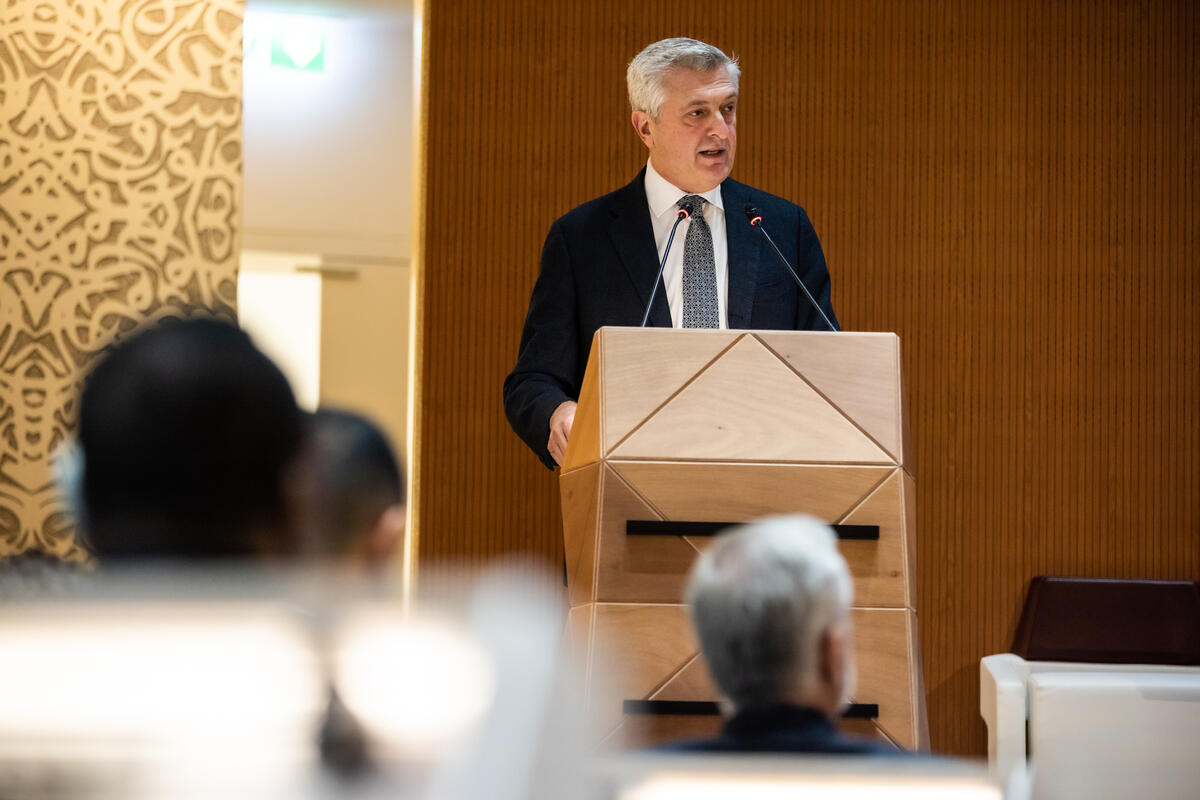Southern hemisphere winter increases hardship for displaced Venezuelans
Southern hemisphere winter increases hardship for displaced Venezuelans

UNHCR, the UN Refugee Agency, warns that the onset of winter, compounded by the devastating effects of COVID-19, poses a direct threat to the health and livelihoods of Venezuelan refugees and migrants in southern Latin America.
Nearly two million Venezuelan refugees and migrants have settled in Argentina, Bolivia, Brazil, Chile, Paraguay, Peru and Uruguay. Some of these countries are among those with the highest COVID-19 infection and death counts globally. Venezuelans have mostly been included in national health responses, but with hospitals operating at full capacity, access to treatment for other illnesses, including those associated with the winter season, has become ever more challenging.
COVID-19 prevention measures have also had a severe socio-economic impact on countries in the region, and refugees and migrants have been particularly badly hit. It is estimated that the vast majority of Venezuelans in the region lost their jobs during the pandemic, mostly in the informal economy. As temperatures drop, Venezuelans face increasing poverty, evictions and protection risks. Many cannot afford to buy heaters, fuel, clothes and medicine, and families are reducing their food intake.
“While COVID-19 continues to devastate the region, the arrival of winter threatens to expose Venezuelans to unspeakable hardship. Despair is already deepening, and negative coping mechanisms are on the rise,” said Juan Carlos Murillo, Representative of the Regional Office for Southern Latin America. “Despite the commendable efforts of hosting countries to reduce suffering, more support is required to face the soaring needs.”
Despite prolonged border closures, Venezuelans continue to trek along highways into Andean states and Brazil in search of safety and a place to settle. Across the region, UNHCR is ramping up its efforts to help Venezuelans cope with the onset of winter.
In Peru, winter arrived early this year, with high-altitude communities experiencing sub-zero temperatures and snowfall. UNHCR has prioritized support in high-risk and high-altitude areas, including Puno, Cuzco, and Arequipa, by distributing over 13,000 thermal blankets throughout the winter season, along with hygiene kits.
In Chile, thunderstorms, heavy rains and freezing temperatures have already hit central and southern parts of the country. Along the country’s northern border, where Venezuelans arrive on foot without appropriate clothing, night temperatures are already well below freezing. UNHCR is working to provide 1,000 winter kits and 8,600 thermal blankets, emergency accommodation, cash assistance and electronic vouchers for the purchase of heaters, fuel and winter clothes. Winter kits will also be distributed in various cities in Argentina, Bolivia and Uruguay – especially in border areas – as cold weather hits the region in the coming weeks.
While Brazil is experiencing a severe wave of COVID-19 infections, the Amazonas region has been hit by heavy storms, resulting in the worst floods since 1902 that have damaged humanitarian infrastructure and displaced thousands of Brazilians and Venezuelans alike. UNHCR has provided safe accommodation to those displaced and is helping to rebuild damaged structures. It has also improved the drainage system in shelters and delivered mosquito nets and solar lamps. Winter clothes need to be distributed in the south and centre regions of the country to help Venezuelans cope with cold temperatures.
Ahead of an International Donors’ Conference for refugees and migrants from Venezuela, hosted by Canada on Thursday 17 June, UNHCR is calling on countries to pledge support. Alarmingly, the Regional Response Plan for refugees and migrants from Venezuela (RMRP) remains critically underfunded.
For more information on this topic, please contact:
- In Panama, William Spindler, [email protected], +507 6382 7815
- In Panama, Olga Sarrado, [email protected], +507 6640 0185
- In Argentina, Analia Kim, [email protected], +54 911 4089-0846
- In Chile, Stephanie Nicole Rabi Misle, [email protected], +56 9 9188 6369
- In Peru, Regina de la Portilla, [email protected], +51 959 908 967
- In Brazil, Luiz Fernando Godinho, [email protected], +55 61 981870978
- In Geneva, Aikaterini Kitidi, [email protected], +41 79 580 8334
- In New York, Kathryn Mahoney, [email protected], +1 347 443 76 46









